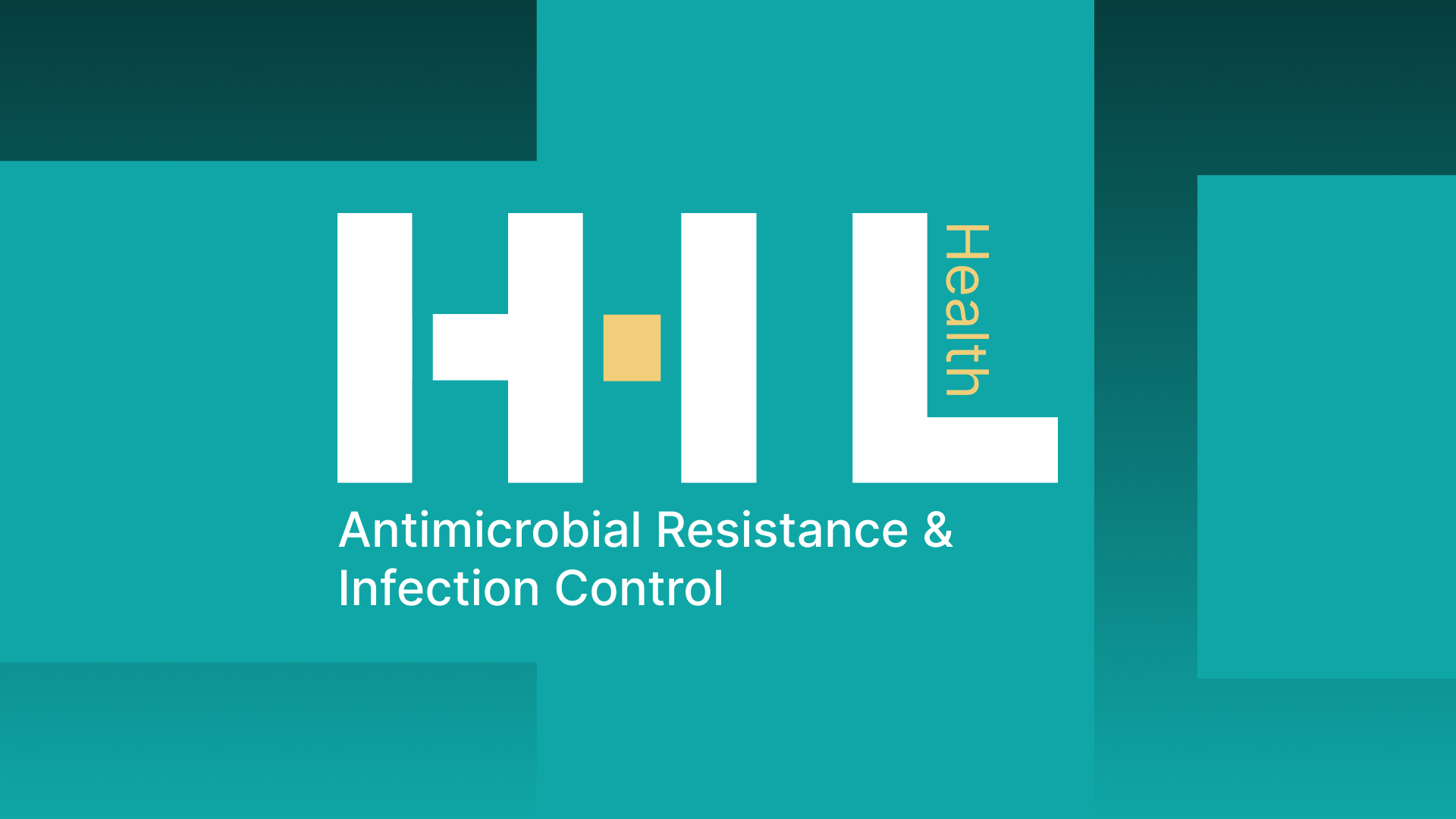Antimicrobial Resistance & Infection Control
Antimicrobial resistance (AMR) represents one of the most significant challenges to global public health today, the rise in antibiotic-resistant infections has rendered many commonly used treatments ineffective, threatening the management of a wide range of diseases. Healthcare-associated infections (HAIs) are a major contributor to morbidity and mortality, in addition the organisms responsible for these infections increasingly display resistance to multiple drugs.
The occurrence of AMR in health settings is compounded by several factors, including the overuse or misuse of antibiotics, cross-contamination, and lapses in IPC practices. Proper hand hygiene, environmental cleaning, isolation of infected patients, and adherence to antimicrobial stewardship programs (ASP) are vital to reduce exposure to antimicrobials through a whole-systems approach to infection prevention and control (IPC), improved diagnostics and treatment in different settings.
The government has pledged to increase access to clinical trials for millions as part of its drive to modernise patient care in the NHS and drive economic growth and calls on the life sciences sector to prioritise the development of new approaches to diagnose and treat infections, the development of vaccines to prevent infections as well as the development new antimicrobials.
£567 million of government spending was directed towards AMR programmes between 2020-21 and 2023-24, while much more public money is spent on relevant activities like purchasing antibiotics and cleaning hospitals. The NHS is working to bring a combined clinical infection management approach to AMR/AMS, sepsis and infection prevention and control with the aim of improving outcomes across all settings, despite these efforts many trusts still struggle enforcing consistent and effective IPC measures influenced by factors such as staff workload, lack of resources, and insufficient training.
This conference aims investigate the prevalence of AMR in UK healthcare system, investment in innovation, antimicrobial stewardship and disposal, and evaluate the effectiveness of IPC measures currently in place. Delegates will gain an understanding of the AMR situation in the UK and evidence-based recommendations for improving infection control practices, enhancing antimicrobial stewardship, and ultimately reducing the burden of AMR on the NHS.
Interested in the Event?
Event Schedule.
08.00 – 09.30 – Breakfast, registration and networking
09.30 – 09.40 – Chair’s welcome
Dr Alexander Rhys, Chief Executive Officer, Infection Prevention Society (Invited)
09.40 – 09.55 – Keynote address – The National Infection Strategy
Professor Matt Inada-Kim, National clinical director for infection and antimicrobial resistance, NHS England (Invited)
09.55 – 10.10 – Preventing Surgical Site Infections in the NHS
Pauline Harrington, National SSI Surveillance Manager, UK Health Security Agency (Invited)
10.10 – 10:25 – Headline Sponsor
10:25 – 10.40 – Q&A Panel Debate
10.40 – 11.20 – Refreshments and Networking
11:20 – 11.35 – Regulation & Accountability in IPC
Joyce Frederick, Director of Policy and Strategy, Care Quality Commission (Invited)
11.35 – 11.50 – Learning from Harm: What Claims Data Tells Us About IPC Failures
Denise Townsend, Head of Safety & Learning, NHS Resolution (Invited)
11.50 – 12.05 – AMR Innovation: Ideation to Regulation and Beyond
Louise Knowles, Deputy Director – Innovation Accelerator and Regulatory Science, MHRA (Invited)
12:05 – 12.20 – Q&A panel Debate
12.20 – 12.30 – Movement Break
12.30 – 12.50 – Case Study 1
12.50 – 13.10 – Case Study 2
13.10 – 13.30 – Case Study 3
13:30 – 14:30 – Lunch in the Network Surgery
14.30 – 14.50 – Case Study 4
14.50 – 15.10 – Case Study 5
15.10 – 15:40 Movement Break & Refreshments
15.45 – 16.00 – Infectious Diseases and Microbiology
Dr Rajeka Lazarus, President, British Infection Association (BIA) (Invited)
16.00 – 16.15 – AMR as a Systems Challenge: Behaviour, Policy, and Equity
Professor Alison Holmes, Director – Health Protection Research Unit in HAIs and AMR, NIHR (Invited)
16.15 – UK AMR Cross Research Council Initiative
Dr Louisa Jenkin, AMR programme lead, UK Research and Innovation (UKRI) (Invited)
16:30 – 16.45 – Q&A panel Debate
16:55 – 16.50 – Conference Close

